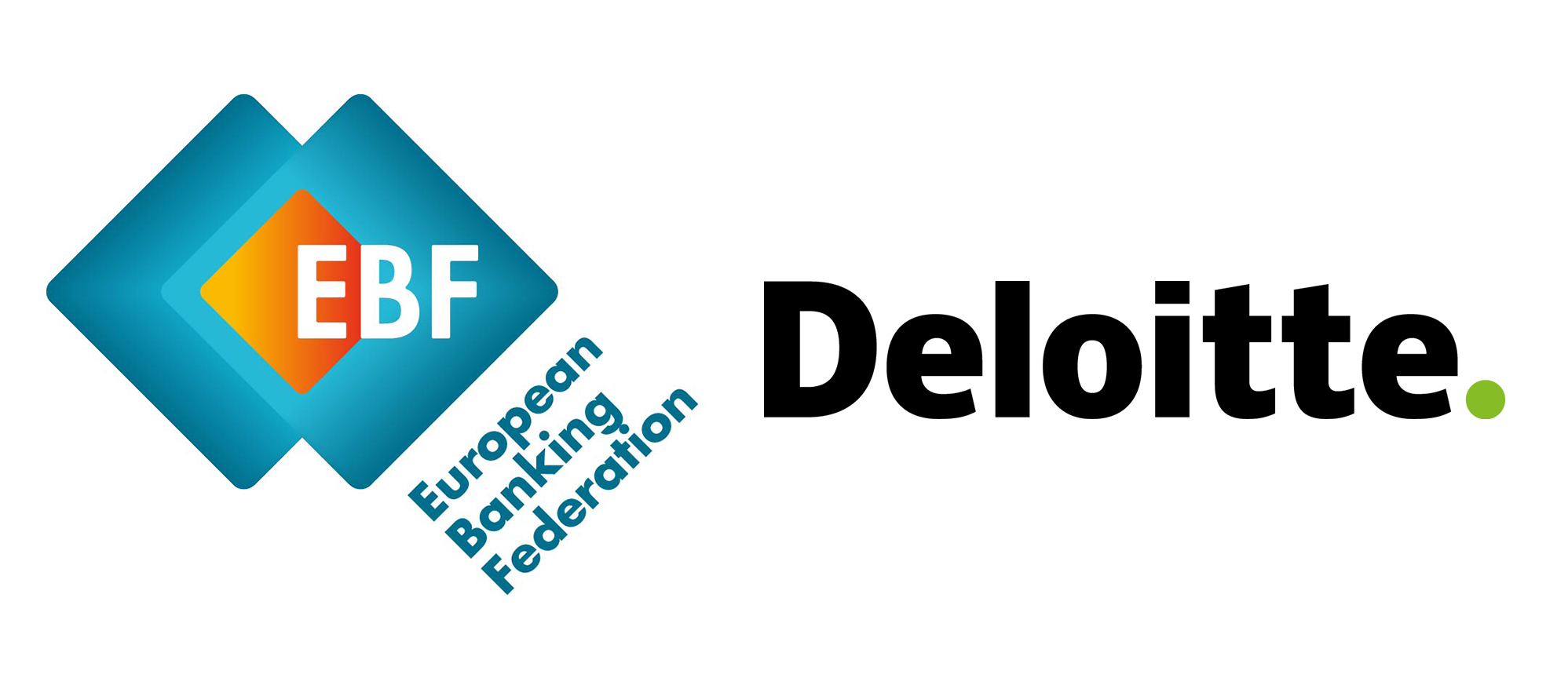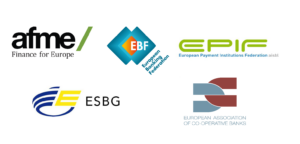EBF STATEMENT
Joint Association Statement on MIFIR RTS 2 Post-trade Deferrals for Bonds
BRUSSELS, 3 October 2024 – The European Banking Federation (EBF), together with the Association for Financial Markets in Europe (AFME), BVI (German Investment Funds Association), Bundesverband der Wertpapierfirmen (BWF), the European Fund and Asset Management Association (EFAMA) and the International Capital Markets Association (ICMA) released a joint statement on MIFIR RTS 2 post-trade deferrals for bonds.
It follows the respective associations’ responses to the May 2024 ESMA Consultation Paper on the amendment to RTS 2 and is intended to guide ESMA in fulfilling its mandate of drafting regulatory technical standards to support an effective post-trade deferral regime as required by Article 11(4) of MiFIR.
Central to the recommendations offered by the Associations is the importance of ESMA following a credible, balanced and data-driven approach in determining the appropriate calibrations for applying deferrals. The proposal put forward by ESMA in its May 2024 Consultation Paper is not consistent with this approach and, as currently designed, could fail in its objective of creating an effective transparency framework for EU bond markets.
For more information:
Jacopo Borgognone, Senior Policy Adviser – Financing Growth, j.borgognone@ebf.eu
About the EBF:
The European Banking Federation is the voice of the European banking sector, bringing together national banking associations from across Europe. The EBF is committed to a thriving European economy that is underpinned by a stable, secure and inclusive financial ecosystem, and to a flourishing society where financing is available to fund the dreams of citizens, businesses and innovators everywhere.
The post Joint Association Statement on MIFIR RTS 2 Post-trade Deferrals for Bonds appeared first on EBF.
]]>DORA | RTS on ICT Incident Classification based on EBF’s Position
PUBLICATION
DORA | RTS on ICT Incident Classification based on EBF’s Position
x
Brussels, 15 January 2024 – On June 19th, 2023, the European Supervisory Authorities (ESAs), EBA, EIOPA, and ESMA, published the first batch of Consultation Papers for the technical standards mandated by the Digital Operational Resilience Act (DORA) which aims at collecting market participants’ feedback on their development.
The European Banking Federation (EBF) and Deloitte have held a joint workshop to gather feedback from the EBF’s members, specifically around the Consultation Paper for the RTS “on specifying the criteria for the classification of ICT-related incidents, materiality thresholds for major incidents and significant cyber threats under Regulation (EU) 2022/2554” that will be submitted to the European Commission on January 17th, 2024.
Below are reported the main key attention points raised by the EBF members during the consultation of the Draft RTS:
- Unclear definition of Critical Services
- Sound Application of Proportionality Principle and Risk-based Approach
- The Challenges in the Notification of Significant Threats
A full overview of the discussion can be found here.
X
For more information
Alexandra Maniati, Senior Director of Innovation & Cybersecurity, a.maniati@ebf.eu
Dimos Karalis, Policy Adviser – Innovation & Cybersecurity, d.karalis@ebf.eu
X
About the EBF:
The European Banking Federation is the voice of the European banking sector, bringing together national banking associations from across Europe. The federation is committed to a thriving European economy that is underpinned by a stable, secure and inclusive financial ecosystem, and to a flourishing society where financing is available to fund the dreams of citizens, businesses, and innovators everywhere.
The post DORA | RTS on ICT Incident Classification based on EBF’s Position appeared first on EBF.
]]>Joint Statement on Duplication in the Cyber Resilience Act
EBF STATEMENT
Joint Statement on Duplication in the Cyber Resilience Act
BRUSSELS, 23 November 2023 – The European Banking Federation (EBF), together with the European Association of Co-operative Banks (EACB), the European Savings Banks Group (ESBG), the Association for Financial Markets in Europe (AFME) and the European Payment Institutions Federation (EPIF) released a joint statement on the ongoing process of finalizing the trilogue discussions on the Cyber Resilience Act (CRA).
The industry acknowledges that cross-sectoral rules on mitigating vulnerabilities within the lifecycle of digital products contribute to elevating cybersecurity throughout the entire supply chain. However, there are already rules in place for the financial sector that ensure its strong digital operational resilience and cybersecurity. The Digital Operational Resilience Act (“DORA”) introduces a comprehensive cybersecurity and ICT risk management regime that introduces requirements for financial services equivalent to the CRA.
Avoiding duplications and overlaps between the CRA and DORA is crucial for a clear, fit-for-purpose and harmonized European cybersecurity regulatory landscape. Therefore, we support the amendments introduced in the CRA text by the European Parliament that reference the compatibility of the CRA with other Union rules, notably DORA and financial services.
For more information:
Dimos Karalis, Policy Adviser – Cybersecurity & Innovation, d.karalis@ebf.eu
x
About the EBF:
The European Banking Federation is the voice of the European banking sector, bringing together national banking associations from across Europe. The EBF is committed to a thriving European economy that is underpinned by a stable, secure and inclusive financial ecosystem, and to a flourishing society where financing is available to fund the dreams of citizens, businesses and innovators everywhere.
The post Joint Statement on Duplication in the Cyber Resilience Act appeared first on EBF.
]]>European Commission’s DORA proposal (2020): EBF position
POSITION PAPER
x
European Commission’s DORA proposal (2020): EBF position
BRUSSELS, 03 May 2021 – The adoption of innovative technology by European banks requires a balance between a reliable and consistent framework of financial regulation and flexibility to adapt to changing business models. The inherently cross-border nature of digital service solutions needs to be addressed by banks, regulators, and digital service providers on common ground, looking for the secure facilitation of financial service innovation across Europe. An appropriate and harmonized pan-European legal framework is key to facilitate adoption of innovative technology.
Consequently, the EBF welcomes the European Commission’s aim to enhance operational resilience in Europe. The financial industry’s own considerations will benefit from more harmonized ICT-related rules at the European level, aligned with the existing supervisory framework today. Detrimental fragmentation of the regulatory framework should be avoided, addressing risks consistently and proportionately across European jurisdictions without hampering the financial industry’s ability to apply innovative services.
With this position paper, the EBF addresses the proposal for a Regulation on digital operational resilience for the financial sector, as published by the Commission in September 2020.
x
For more information:
Alexandra Maniati, Director of Innovation & Cybersecurity, a.maniati@ebf.eu
Julian Schmücker, Senior Policy Adviser Digital Innovation, j.schmucker@ebf.eu
Dimos Karalis, Policy Adviser – Innovation & Cybersecurity, d.karalis@ebf.eu
Latest posts
- EU T+1 Industry Committee launches roadmap and opens consultation period for capital markets transformation
- European Credit Sector Associations welcome efforts to strengthen European retail payments
- The EU T+1 Industry Committee finalises High-Level Road Map
- Vacancy: Innovation and Cybersecurity Trainee
- New study stresses urgent need for regulatory capital efficiency
Subscribe to the EBF Weekly + FinReg Agenda
Every Friday at noon you can receive the EBF Weekly + Financial Regulation Agenda. This agenda presents an overview of upcoming European and international meetings and conferences in financial regulation, as well as important general financial and economic events and key EBF meetings for the week ahead. CLICK HERE TO SUBSCRIBE
Subscribe to the EBF Morning Brief
The EBF Morning Brief is published Monday through Friday morning and brings you the top banking headlines, relevant announcements from the EU institutions and the latest from the EBF and its members, national banking associations in 32 countries in Europe. CLICK HERE TO SUBSCRIBE
The post European Commission’s DORA proposal (2020): EBF position appeared first on EBF.
]]>


